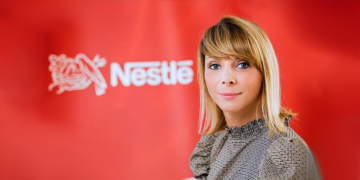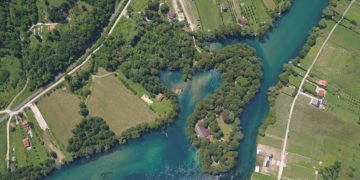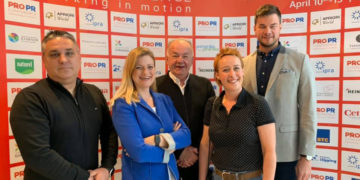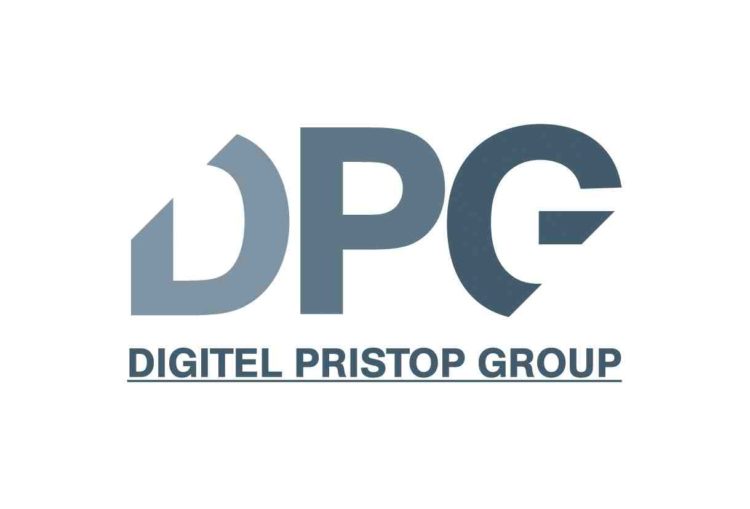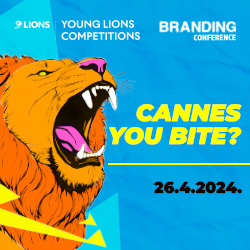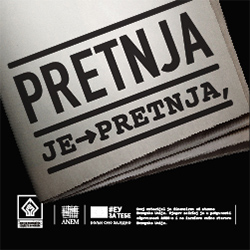Drugi jezik na kojem je dostupan ovaj članak: Bosnian
Source: Jutarnji list
Author: Gordana Grgas
A huge moneymaker for the entire system was the Digitel Media Services (DMS) media buy company, which was founded in 1998 and was run by Jasna Hrvić Smolec. In 2007, revenues amounted to HRK 340 million, and profits stood around HRK 10 million, which was the highest in the market.
The creative agency Digitel worked in parallel with DMS, and at about that time the PR agency Premisa was established, which was run from the start by Aljoša Roksandić. According to Vince, he was trained in communications business in Slovenia, at Pristop. That agency was established by Franz Zavrl, former editor of Mladina, together with partners. From that point, collaboration with Pristop was more or less continuous.
Things started rolling for Digitel, and the first major contracts came with the HT, which since 1999 was led by Ivica Mudrinić, a former HDZ minister. The amounts that were in circulation in the next 10 years can be best illustrated by the fact that in 2008 alone, T-Mobile Croatia and T-Hrvatski Telekom planned to spend HRK 320 million for the lease of media space, and were the largest advertisers in Croatia, with Agrokor in second place with HRK 310 million. Digitel created nearly all advertising campaigns for HT, and that part of the system in its prime years had about HRK 80 million of revenue.
In general, at the turn of the millennium, a major boom in marketing and communications business in Croatia occurred, and one of the first employees of Premisa, former journalist and music manager Ozren Kanceljak, describes it as El Dorado. He considers that time the best and most creative in his career, but he left Premisa because he said he wanted to be his own boss. In any case, he returned as a “specialist” two more times – once during the ties with Pristop, and the second time in 2014 when he tried to restart business of two companies in the system – the creative agency Digitel and Premisa, which were in pre-bankruptcy process.
Premisa ended the 2013 with HRK 10.6 million in revenue, and HRK 1.5 million in profits, which was less than in the previous years, but not dramatically, and with large receivables from related companies and commitments due to loans and guarantees. Revenue at Digitel – the nucleus from which the entire system grew – declined sharply to barely one fifth compared to the pre-crisis year, so it ended the 2013 with HRK 10 million, five employees, and it had operated with a loss. Obligations to suppliers and related companies amounted to approximately HRK 9 million, and it was also a co-creditor / guarantor for Digitel Communications and Digitel projects in the amount of HRK 62 million.
The golden years
“The period from 1998 to 2008 in Croatia was a golden age of marketing. The market was alive, new players came in and Digitel rode that wave. They were doing great,” recalls the advertising and PR expert Boris Malešević, who at that time was the owner of Public Image and Designsystem.
Digitel tried hard to be different in everything, and they flaunted it with expensive offices located on two floors in Banjavčićeva street in Zagreb, decorated with designer furniture, and in some of the rooms employees had a DJ desk equipped with about one hundred old LPs, so they played music during and after work. In one of the offices, they had a table tennis table and a basketball basket. Everything was in perfect harmony with the then economic Belle Époque feeling in Croatia. Vladimir Smolec back then began to appear on Nacional’s lists of the richest Croats.
Within a short period of time, a whole bunch of Digitel’s affiliated, specialized companies popped up, under the Digitel Communications umbrella. In the process of acquisition of competitors, at one point the group included the Millenium promocija agency (Mario Petrović) and Predikat (Boris Lešić, who was a manager of Premisa for some time) but after a few years they left the system. Lešić now manages Conex Studio, the agency for market communications. During that time, Kristina Laco was co-owner of Premisa, and for some time the CEO of Digitel Communications. When everything started going towards pre-bankruptcy, together with Violeta Colić she founded the independent agency, Communication Office Colić, Laco and Partners. Last year, they were hired by the new Agrokor management, to manage the communication of the holding company after the “lex” was adopted.
Events
Apart from Premisa, and the creative agency Digitel led by Vince, the most notable and successful in the system were Da! (2002) and Pepermint (2002) agencies for experiential communications and event management. It was a pioneering business on the Croatian market, and Da! simply blossomed and in five years, before the outbreak of the crisis, had revenues of as much as HRK 30 million. It was led by Tomo Ricov, former journalist of Polet and Start and a famous DJ from Kulušići, and in the late 90’s he was “mobilized” to Digitel by Vince.
“We produced more than a thousand events in the period between 2002 and 2010. Clients were Heineken, Siemens, HT, Gilette, TDR, EPH and many others. We also worked on the biggest sports events like the Snow Queen, the World Handball Championship, the Asian Games in Oman …” Ricov recalls.
He gained 20 percent stake in Da!, according to the reports, but in 2010 he decided to pull out, and he and his partner “took” along the Pepermint agency and its Weekend Media Festival, with all the rights and obligations. Only then Ricov founded the renowned Pepermint club in Ilica, where Emil Tedeschi used to come and where he occasionally played music (under the name DJ SMS Deutsch). Among the patrons were also Prime Minister Zoran Milanović and HNB governor Boris Vujčić, friends from the youth. The media then wrote about them as “Pepermint Boys”, and they were photographed a couple of years in cheerful club atmosphere on Christmas. Today, Ricov says he is also a partner in several catering facilities: Johann Franck, Boogie and Kic, and he also revisits his DJ gigs when he has the time.
In its market blitz at the beginning of the 2000s, Digitel also founded the production branch of the business, Ring Multimedia, for the production of television content, which in time has grown into the Ujedinjene produkcije company. According to our interlocutors, the initial enthusiasm burned through significant amounts of money. In the process of consolidation, companies were acquired that were supposed to bring new jobs and money, and in 2007 Digitel was joined by Core media (Vladimir Šelebaj Sellier and Dijana Čuljak). After the media reports of shady business, which resulted in court proceedings and convicting first instance verdicts, this alliance was dissolved.
At that time Digitel also took over the production company Drugi plan (Nebojša Taraba and Miodrag Sila), which brought the Mamutica series and the Kod Ane TV show, and there were considerations of launching a TV channel for women, TV Ona, in partnership with Tonči Huljić. Drugi plan, however, didn’t remain long in the system, and since 2013 it is an independent company (Taraba and Sila bought the 50% stake from Digitel), and today have the internationally successful projects Novine and Uspjeh, that are available on Netflix and HBO.
The turning point and collaboration with Pristop
An important business milestone for Digitel took place in 2005. At that time, three original founders of Digitel waved part of their ownership in favor of Roksandić, who proved himself while managing Premisa, and thus he became the equal fourth partner. “It was both a reward, and a recognition of reality. Up to then, Roksandić only had an ownership stake in Premisa,” Vince explains. Due to the illness of Vladimir Smolec, management of Digitel Communications as a group was taken over by Roksandić, but with Smolec in the Board. Vince remained at the helm of the creative agency. As he says, he disagreed with his partners on the then-announced business strategy of expanding the company.
That year, Digitel made ties with the Slovenian Pristop through share-ownership trade, after they jointly decided on conquering the regional marketing and communications market. The Digitel Pristop Group emerged with seven components in Croatia, Slovenia, Serbia, Bosnia and Herzegovina, Montenegro, Macedonia and the EU (agencies in Athens and Vienna were purchased then). Many describe it today as a megalomaniac project, and the idea was to sell the expanded business to some of the major international holding companies. 33 percent stake in the group was held by Pristop, 33 percent by Digitel (spouses Smolec, Vince and Roksandic), and 33 percent by Slovenian publisher-media conglomerate DZS owned by Bojan Petan.
Although in 2009 it was announced that it had grown into a regional holding company, with around €100 million in revenue and about 400 employees, the project gradually collapsed. Before that, DZS’s share was bought out through the D ulaganja investment company, it was announced, but the financial details of the deal were not disclosed. The financial tails of these obscure arrangements and investments remained shady until Digitel’s final collapse. Bojan Petan (DZS) was at one point the procurator at Digitel, and the Slovenian NLB bank credited Digitel under DZS guarantees. NLB tried to collect their claims in various ways, but the DZS also fell into financial troubles.
Still, the Digitel-Pristop project almost succeeded, it seems. “Even the EBRD was interested in investing in the group. It was seriously considered back then, and we were on the verge of signing the contract, but ultimately both us and the Slovenians backed out,” says Vince, who, unlike his partner, thought that EBRD would have brought Digitel new management quality and greater security. Thereafter, there was even a chance that they would be taken over and recapitalized by the global marketing-communications giant WPP, but their analysis showed that growth opportunities were weak in the long run and the WPP’s Board decided against the acquisition.
Tomorrow: How Digitel failed (4): The stock market dreams








